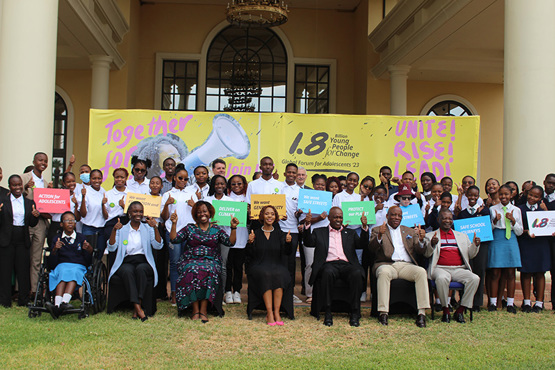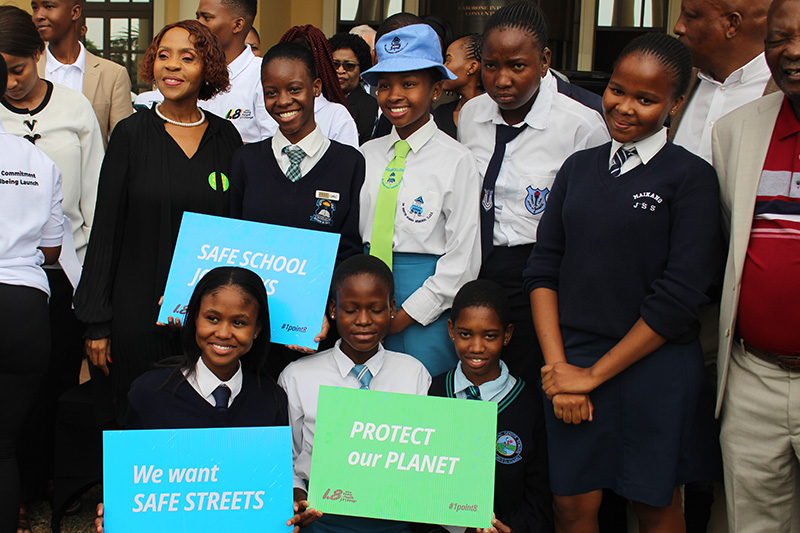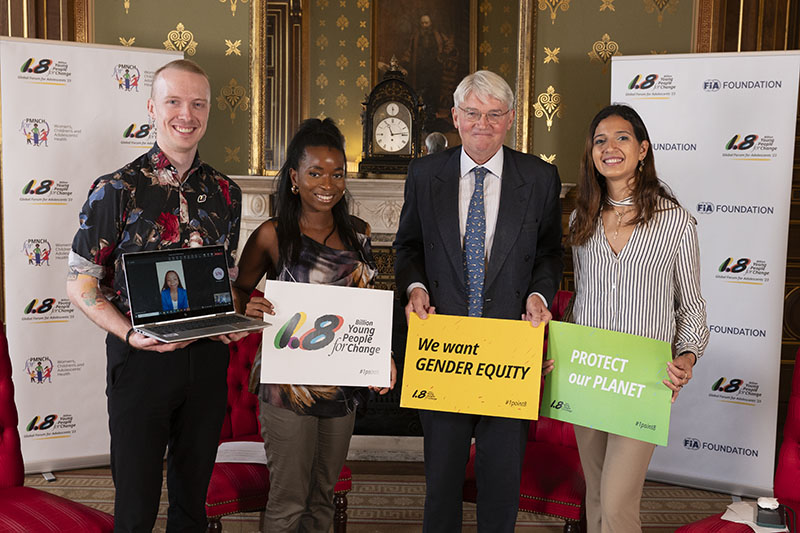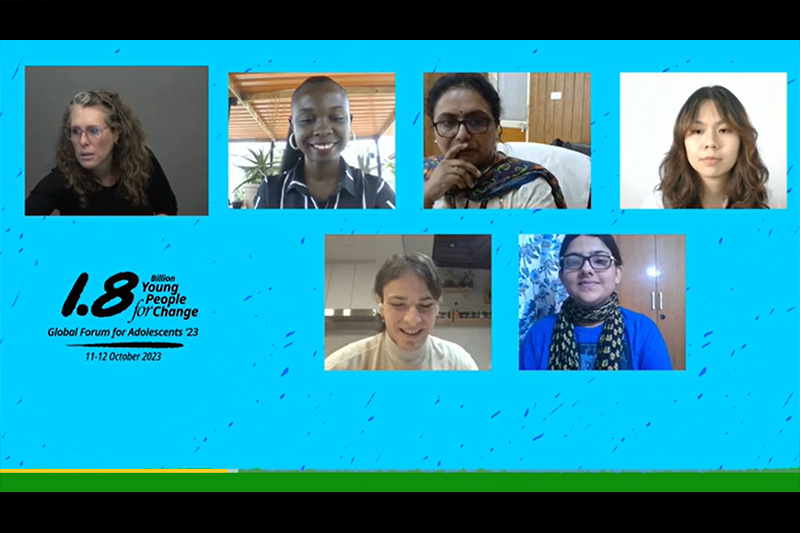Road safety focus in Global Forum for Adolescents

The Global Forum for Adolescents, the world’s largest gathering of young people aimed at galvanising action and policy commitments has concluded with a strong focus on road safety.
The Forum, which was coordinated by the global alliance for women’s children’s and adolescents’ health (PMNCH), addressed the major issues facing young people around the world. Road traffic injury as the leading global killer of young people was prominent in the Forum alongside issues such as interpersonal violence, mental health, early marriage, sexual reproductive health and rights, nutrition and education.
The two-day event was the culmination of a global ‘What Young People Want’ consultation involving 1.2 million young people, gathering their views on priorities for action. Road safety had featured in responses from around the world.
The FIA Foundation has been a leading partner in work leading up to the Forum and has played a major role in mobilising some of the strongest commitments that were made. The Foundation has been intensively engaged in work underway in three countries in particular: Botswana, Mexico and South Africa. Their commitments for adolescent health and well-being were first launched at the SDG Summit in New York and then further highlighted and focused on at the Global Forum.

Most prominent was the commitment led by the President of Botswana Mokgweetsi Masisi. He launched Botswana’s commitment during a national event on 10 October, with participation from the FIA Foundation’s Africa Youth Ambassador Oliva Nalwadda alongside UN organisations, civil society and youth leaders. The Government of Botswana’s commitment includes the following:
- Commitment to develop transport policies enabling safe walking, cycling and public transport, including standardized road-worthy transport.
- Strengthen and scale-up the partnership with the FIA Foundation’s partner Amend on school area road safety.
- Strengthen investment in sustainable safe transport particularly cycling and walking provision.
Speaking at the launch event, President Masisi said that his Government’s commitment “sets out to tackle the scourge of road traffic injury that disproportionately affects adolescents and young people of Botswana.”
“Yes, I heard it distinctly and clearly that the design of our roads and the routes to school are a dangerous risk at the moment,” he said pledging to take action.
Oliva Nalwadda said: “I am proud of the work that we have done at the FIA Foundation around the world to help mobilise the kind of commitment we have seen from Botswana. This is a leading example of exactly what is needed: specific actions to address the biggest killer of young people which is road traffic injury. What has been vital is that young people themselves have been at the forefront of this commitment work. I look forward to the next steps in turning commitment into real lasting impact to save lives and ensure we have a better future.”
Mexico’s commitment includes the promotion of low speeds on roads around schools. It builds on earlier legislation for 30km/h speed limits around schools, and 20km/h on smaller roads. South Africa has engaged with the FIA Foundation’s partner ChildSafe which has been implementing school area road safety measures in two provinces.
A further 16 Government commitments were highlighted at the Forum. Some, such as Canada, Honduras, India and Malawi had launched their commitments at the SDG Summit in an event linked to the Forum and supported by the FIA Foundation. Further commitments were launched by the Republic of Congo, Ecuador, Ethiopia, Ghana, Namibia, Nigeria, and the US.
Also highlighted were $150m of commitments from philanthropies, including Fondation Botnar with a $45m commitment and the FIA Foundation with its commitment to safe school journeys. These commitments had first been presented at the Clinton Global Initiative in New York alongside the SDG Summit.
The FIA Foundation played a major role during the two-day Forum, supporting two key panel discussions, highlighting the role of road safety to achieve global adolescent health and well-being.

During the first day, the Foundation supported and led coordination of a session hosted by UK Foreign Minister Andrew Mitchell. This was an interactive session with young leaders. In it, the Minister stressed the importance of road safety.
“It is road deaths, particularly in the developing world that are a major source of trauma and difficulty,” he said. “Making roads safer is something that we try to build into any programmes that are infrastructure and road related.” The Minister acknowledged that road traffic injury is the biggest killer of young people and said that prevention needs to be built into development work.
In this panel session, ‘Global Adolescent Priorities: Lights, Camera, Action!’ the FIA Foundation joined with Plan International UK and Restless Development, emphasizing the importance of adolescent voices in shaping a brighter future for the world's 1.8 billion adolescents and young people under the age of 24.
FIA Foundation Africa Youth Ambassador Oliva Nalwadda led a session dedicated to road safety. ‘Driving Change: Youth Engagement for Improved Road Safety’ focused on youth-led road safety advocacy, organised jointly with International Road Assessment Programme (iRAP), The George Institute for Global Health, Youth for Road Safety (YOURS), Global Youth Coalition for Road Safety, AIP Foundation, UNICEF, and WHO. Oliva led discussions on how adolescent engagement can accelerate public health change and combat climate change, inspiring collective efforts to make roads safer and ultimately improve the well-being of young people worldwide.




